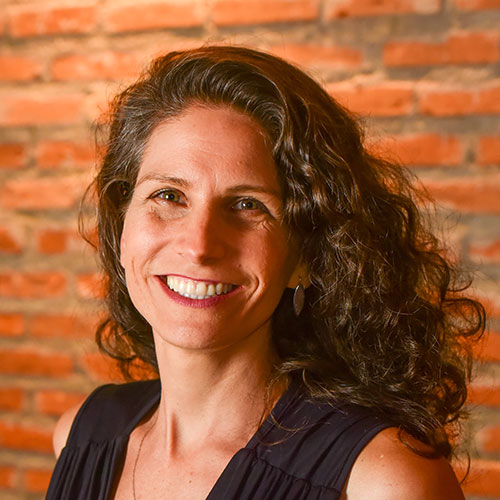LBGT+ Pride: Acontece Arte e Política advocates for the right to be yourself all year long
NGO fights prejudice and LGBTphobia through art and through the Observatório de Mortes e Violência contra LGBT+ no Brasil (‘Observatory of Deaths and Violence against LGBT+ in Brazil’)


Acontece Arte e Política (Acontece Art and Politics) is one of the NGOs behind the LGBT+ Parade of Florianópolis, capital of the Brazilian state of Santa Catarina, as well as the Diversa Cultural Fair and the Observatory of Deaths and Violence against LGBT+ in Brazil. The name is no coincidence. Using art as a political platform, the NGO uses dance, theater, music, performance and other cultural expressions to combat prejudices, LGBTphobia and advocate for social rights.
According to the coordinator of the NGO and psychologist Pietra Fraga do Prado, prejudiced people struggle to respect those who are different, and art serves to provoke these issues. “Art brings a representation of life that touches emotions and feelings much more than simply explaining, presenting a theory, or providing data about it”, she says.
In addition to artistic expressions, the NGO produces health campaigns and collaborates with two other associations, ANTRA – National Association of Transvestites and Transsexuals and ABGLT – Brazilian Association of Lesbians, Gays, Bisexuals, Transvestites, Transsexuals, and Intersex’, on the Observatory of Deaths and Violence against LGBT+ in Brazil. Their reports have been instrumental in shaping public policies tailored to the community. According to the latest report, at least 230 deaths were motivated by LGBTphobia in the country in 2023.
LGBT+ rights
Among the rights advocated by Acontece Art and Politics are improvements in access to quality sexual and mental health care for the LGBT+ community, adequate public safety, access to higher education and employment, particularly among transgender individuals, the right to leisure, access to culture and greater political representation.
“Although Brazil has stood out with the highest number of transgender individuals elected in the last elections, it still does not reflect the percentage of the country’s LGBT+ population. How many public policies refer to the community?”, Pietra questions.
In 2022, the National Council of Justice launched the Rogéria Form* to identify LGBTphobia crimes. According to Pietra, however, in many cases, the form is not even used. “Many police officers are ashamed to ask about people’s sexual orientation and gender identity. They make a social reading of the person and still do not fill out the form. That’s why agents also need training”, she explains.
However, there is no law in Brazil that defines crimes motivated by LGBTphobia. Because of this, in 2019, Brazil’s Supreme Federal Court (STF) decided that practices of homophobia and transphobia could be categorized as prejudice crimes under the Lei do Racismo (7716/89) (‘Racism Law’), which defines crimes of discrimination or prejudice based on race, color, ethnicity, religion and national origin.
*Rogéria Form pays homage to Rogéria, a Brazilian actress, makeup artist and drag queen. With charisma and good humor, she was always applauded by the public, being a pioneer of gay rights in Brazilian television and opening doors for others.

Acontece Art and Politics
The advocacy for quality health care for the LGBT+ community is a longstanding commitment of Acontece Art and Politics. The NGO promotes campaigns against HIV and other STIs in Florianópolis and other cities in Santa Catarina. During artistic events like the Diversa Cultural Fair, there are lectures on sexual health, HIV testing and informational booths.
“We understand that various social groups are at risk for HIV, but there is still this historical stigma from when the epidemic began, which was associated with LGBT+ individuals. Perhaps this has hindered the community’s access to information and practices regarding prevention methods, putting them at greater risk”, explains the psychologist.
Pietra recalls that prevention of STIs for lesbian women remains inadequate. “Even today, lesbian women resort to makeshift solutions; there isn’t material or a method to prevent the exchange of bacteria and viruses during their sexual relations”.
She also highlights the high number of suicides within the LGBT+ community and ways to address this issue: “Data indicates that an LGBT+ person is three to six times more likely to attempt suicide than a heterosexual person. However, if you live with someone who accepts you as LGBT+, meaning they respect your sexual orientation and gender identity, this reduces the suicide attempt rate by 40%”, she warns.
Prejudice and violence
According to the coordinator, similar to racism, LGBTphobia permeates interpersonal, institutional and structural relations. “The trivialization by politics and society itself in recognizing that LGBTphobia kills comes from this place”, she asserts. The absence of official data on deaths and violence against LGBT+ individuals indicates, for example, neglect towards the community.
In response, the associations Acontece ‘Art and Politics, ANTRA and ABGLT formed theObservatory of Deaths and Violence against LGBT+ in Brazil, a data production space based on records found in news outlets, online portals, social media, and data from Brazil’s Public Security Secretariats. With dossiers since 2020, the methodology has brought national visibility to the cause.
“But the government needs to take responsibility for this data by training public security professionals to conduct these investigations. Only then can we conduct a more reliable analysis”, Pietra warns.
For her, LGBTphobia reflects the very constitution of our society. “Brazil has a socio-cultural formation marked by rights violations, especially of minority groups. This is reflected in LGBTphobia, exacerbated by our religious history, which has played a role in excluding those considered deviant from the norm”.
“We can no longer tolerate a world where being who you are means risking being murdered. We can no longer tolerate intolerance and hatred. It is urgent that we are respected and remain alive”, she concludes.


Do you want to support this cause?
Acontece Art and Politics promotes its initiatives through grants, incentive laws and donations. For more information, visit the website or follow them on Instagram and Facebook.



